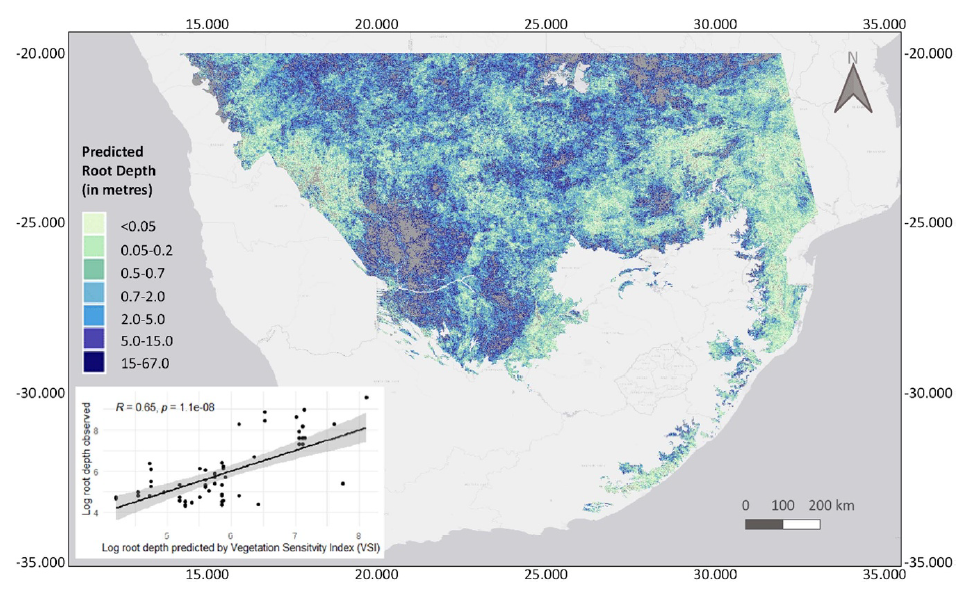Government policy and targets insufficient to stem the tide of UK biodiversity loss
June 30, 2021
Professor Kathy Willis gave oral evidence as an expert witness to the Parliamentary Environmental Audit Committee (EAC) inquiry into the the protection and enhancement of biodiversity and ecosystems in the UK November 2020. The findings of this committee were published yesterday. The full report can be found at the following site but the EAC’s key findings of this report are as follows:
- Existing Government policy and targets are inadequate to address plummeting biodiversity loss. This is made worse by nature policy not being joined up across Government, nor is nature protection consistently factored into policy making. The Government is not on track to improve the environment within a generation, and due to a lack of clear statutory targets, its 25 Year Environment Plan does not provide sufficient direction to change this. Further, the recent biodiversity net gain policy, while welcome, in its current form with the potential for a lack of compliance monitoring and non-implementation of mitigation measures, does not go far enough.
- The sheer variety of data systems and inadequate monitoring, coupled with a lack of ecologist expertise in the heart of Government and in local authorities, presents challenges to introduce effective mechanisms to halt biodiversity decline. Funding cuts to bodies exacerbate this, and the EAC urges the Government to consider increasing Natural England’s multi-year funding to reflect the scale of their tasks to protect nature.
- The Government’s pledge to protect 30% of the UK’s land and seas by 2030 is welcome, but UK protected areas are currently poorly managed. For seas, a timetable should set out management plans and monitoring for all Marine Protected Areas (MPAs), with destructive bottom trawling banned or restricted and effective monitoring introduced to establish if habitats are recovering.
- Irrespective of being classified as ‘protected areas’, the Government should protect existing ecosystems such as ancient woodland and peatlands given their benefits as nature-based solutions for climate change. Much more needs to be done to lock in carbon in these areas, and the EAC calls for the proposed ban on the sale of peat products to be brought forward to as soon as possible before 2023.
- The Government must urgently establish a natural capital baseline to measure progress against environmental goals. It should also legislate for mandatory disclosure of nature-related financial risks. The Government should explain how it intends to move beyond GDP as the primary measure of economic activity and towards an additional measure which includes consideration of the UK’s natural capital. A new fiscal rule should be set focused on balancing our demands on nature with nature’s supply.
Overall, the EAC found that biodiversity loss was not being treated with the same urgency and ambition as climate change. Countering the collapse in biodiversity must be raised up the political agenda and be factored into decision-making across the public and private sector. The EAC noted that we have seen a shift towards this with climate change: the same is possible for biodiversity.
Latest News
Vector Atlas Engagement and Partnership Meeting, December 2022

The Vector Atlas team is looking forward to welcoming representatives from over 15 African countries to the first Engagement and Partnership Meeting to be held at the International Centre ... Continue reading
Seeing roots from space

A new study led by Dr Nicola Kühn during her DPhil associated with the lab titled “Seeing roots from space: aboveground fingerprints of root depth in vegetation sensitivity to ... Continue reading
Vector Atlas Spatial Modelling Workshop, November-December 2022
We are excited to be holding the Vector Atlas Species Distribution Modelling Training Course at the International Centre of Insect Physiology and Ecology (icipe) in Nairobi, Kenya, 30 November ... Continue reading
Vector Atlas at the 8th Annual PAMCA conference

The Vector Atlas team had a great time at the 8th Annual Pan-African Mosquito Control Association (PAMCA) conference held in Kigali, Rwanda, from 26 to 28 September 2022. Excellent ... Continue reading
Vector Atlas Kick-off Meeting

The international Vector Atlas team gathered at the International Centre of Insect Physiology and Ecology (icipe) Duduville campus in Nairobi from 4 to 8 July 2022 to celebrate the launch ... Continue reading
